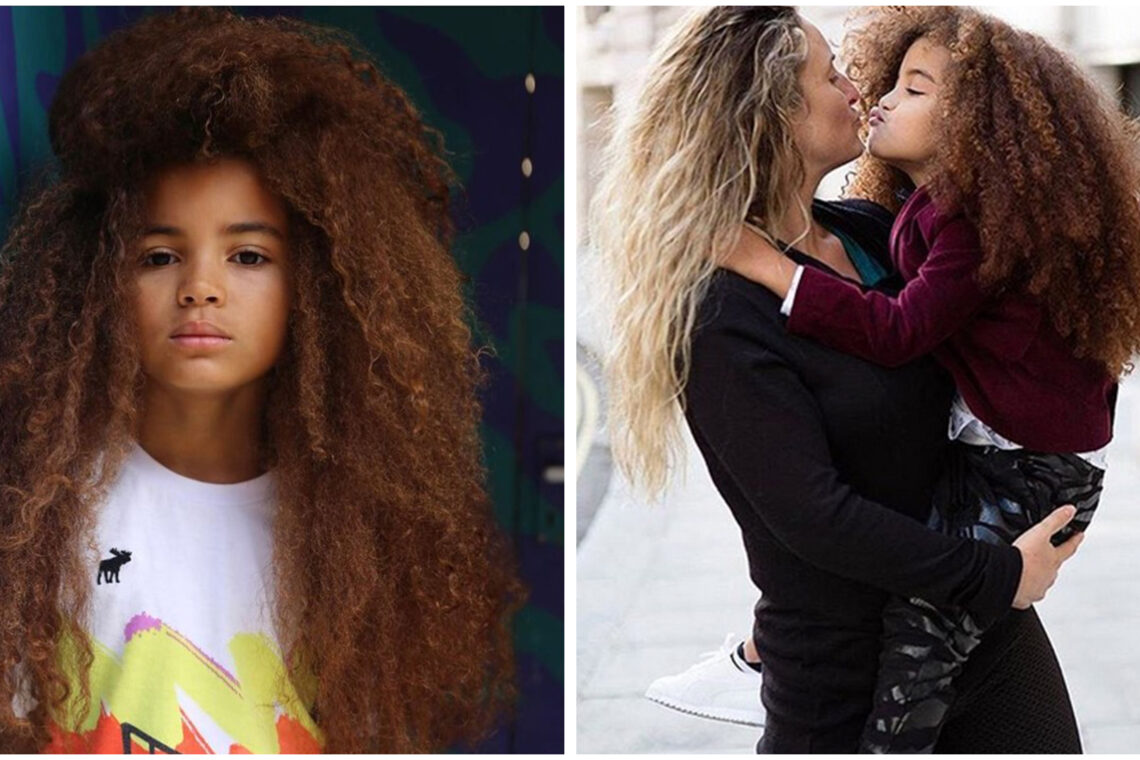
Reflecting on school days often brings a mix of emotions—joy and nostalgia intertwined with the challenges of adolescence. Among the myriad experiences that shape our school lives, school rules stand out as a common thread. While some regulations make practical sense, such as prohibiting jewelry during physical activities, others can seem overly stringent and counterproductive. For instance, sending a student home for wearing too much makeup or for sneaking in a specific soft drink might feel like an unnecessary distraction from valuable educational time.
Many school policies, particularly those governing students’ appearances, can clash with a critical developmental phase in a child’s life—one marked by a desire for individuality and self-expression. Such is the case for one boy in London, whose experience highlights the complexity of school regulations and their potential impact on a child’s education.
Farouk James, an eight-year-old boy with a remarkable head of hair that has drawn the interest of modeling scouts, is navigating the challenges posed by school rules that dictate how boys should look. Farouk has made a name for himself in the child modeling industry, participating in photoshoots across various cities, including New York and Italy. However, his vibrant hair has also led to significant hurdles in his educational journey. Due to the length of his hair, he has faced rejection from several schools, a situation that has left both him and his family disheartened.
His mother, Bonnie Miller, sheds light on their family’s cultural background, explaining that Farouk’s father is from Ghana. In their culture, it is customary not to cut a child’s hair until they reach a certain age—in Farouk’s case, until he was three years old. Bonnie reflects on how they became attached to his hair, stating, “At that point, he was attached—and so was I, to be honest—with his beautiful hair. We just kept the hair.” This decision to maintain Farouk’s hair has turned into a source of conflict with school policies in the U.K., where there exists a stark contrast in hair regulations between boys and girls. While girls can wear their hair long, many schools impose restrictions on boys’ hairstyles, often demanding shorter cuts.
Bonnie argues that such mandates infringe on children’s rights to express themselves and their cultural identities. She has become a vocal advocate against these outdated rules, declaring, “I will not give up trying to persuade governments to put legislation in place to protect children from these outdated, punishing rules.” The emotional toll on Farouk is evident, as Bonnie expresses her frustration with the system: “Farouk hasn’t done anything wrong, and YOU REJECT HIM! He will say goodbye to his friends as they all get accepted into the schools he so desperately wants to attend.”
In response to these challenges, Bonnie has initiated a petition on Change.org aimed at eradicating hair discrimination in schools across the U.K. She has formed a group called the “Mane Generation,” uniting others who share her mission. “We’re getting a real team together and calling it the Mane Generation,” she explained, emphasizing their commitment to advocating for change on a global scale, not just within the U.K.
Despite the adversity they face, the online community has rallied around Farouk. His life, filled with fun and creativity, is showcased on an Instagram account managed by Bonnie, where they have amassed a following of over 250,000 individuals. However, their journey has not been without its challenges. After appearing on a popular morning television show to discuss their struggles, Bonnie faced a barrage of negative comments online, which deeply affected her. “This week is mental health week, so I’m surprised to be receiving lots of negative comments about Farouk’s hair,” she noted, revealing the difficulties of standing up for one’s beliefs in the public eye.
Bonnie emphasizes the importance of self-acceptance and pride in one’s heritage, stating that Farouk’s hair is a fundamental part of his identity. “Farouk’s hair is a God-given part of him, and he will not be cutting it to appease anyone, just as he does not keep it long at my request either.” She believes that the rules governing hairstyles for boys and girls are antiquated and in some cases discriminatory, pointing out that schools often ban hairstyles like dreadlocks and braids that are significant to many cultures.
In advocating for her son and others in similar situations, Bonnie is confronting a system that often fails to recognize the value of diversity and self-expression. The rejection of children based on their hair—something so intrinsically tied to their identity—is an unacceptable practice in today’s world. Bonnie’s passionate campaign serves as a reminder of the need for schools to evolve and embrace inclusivity, fostering an environment where all students feel accepted and valued for who they are.
Ultimately, the dialogue surrounding school policies on appearance must shift to prioritize the well-being and individuality of students. As society continues to progress, it is crucial to dismantle the outdated rules that perpetuate discrimination based on physical appearance. The experiences of Farouk James and his family highlight the pressing need for schools to reassess their policies and cultivate an educational landscape that celebrates diversity, allowing every child to express their unique identity without fear of rejection or discrimination. As advocates like Bonnie Miller continue to challenge these norms, there is hope for a future where all children can thrive, unencumbered by arbitrary rules that limit their expression.